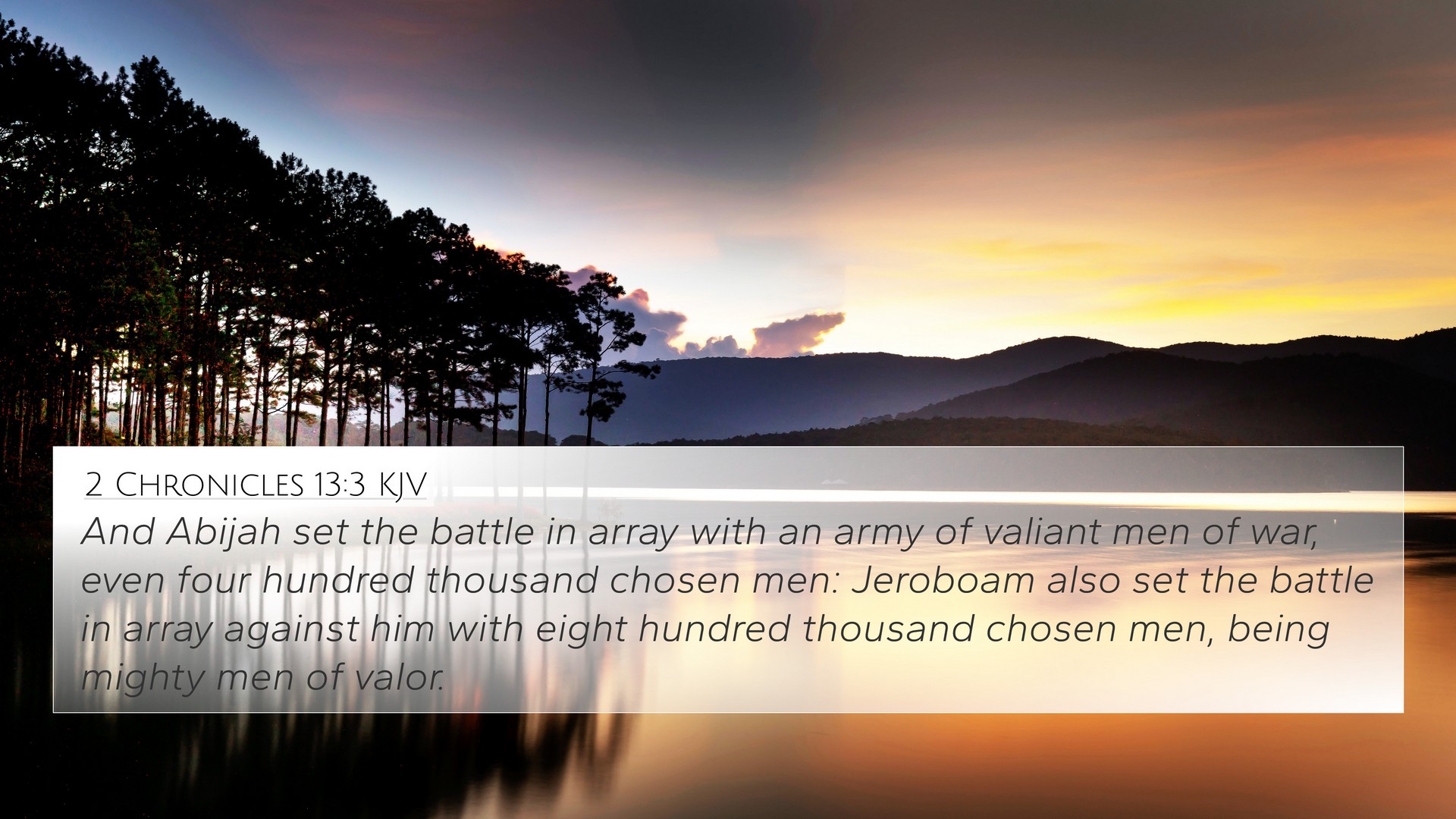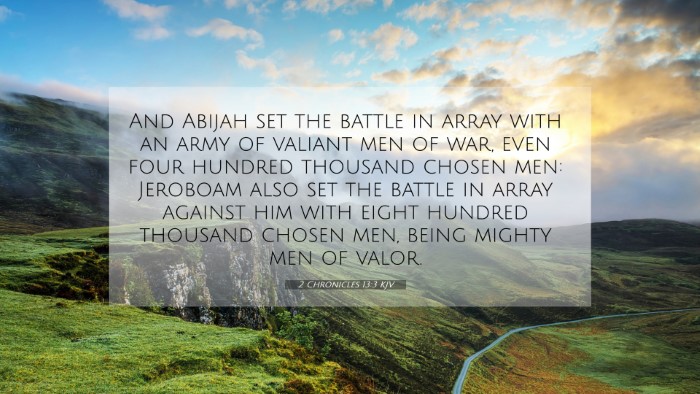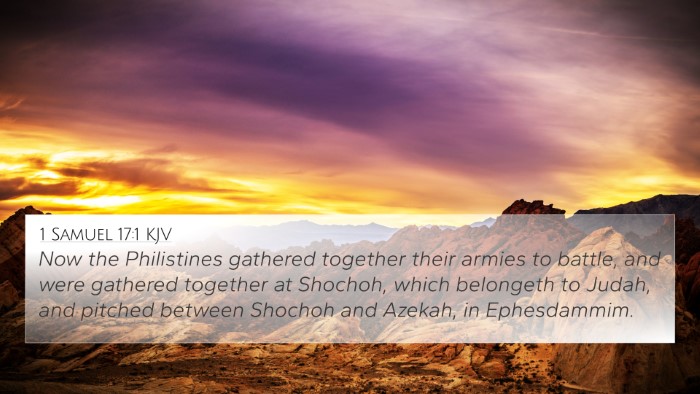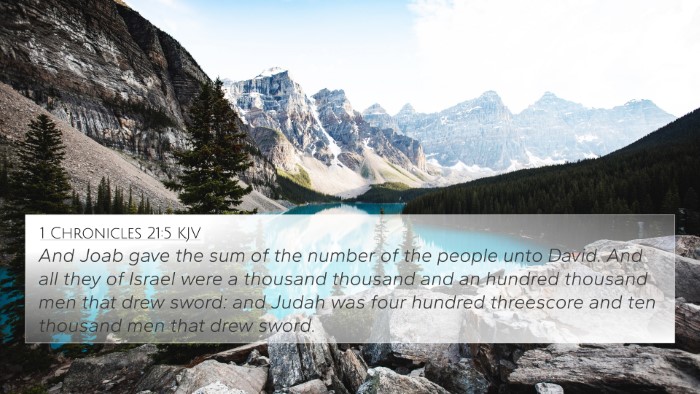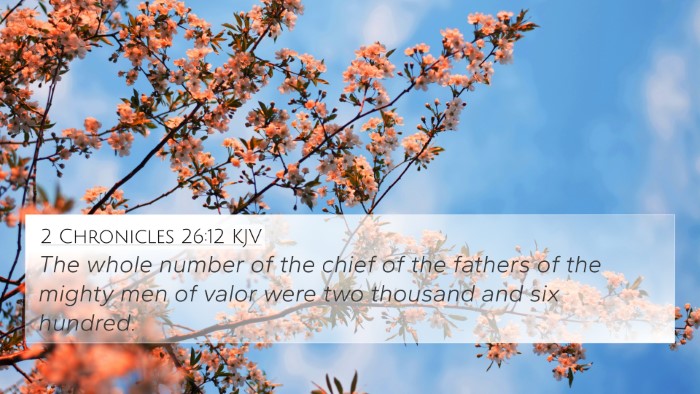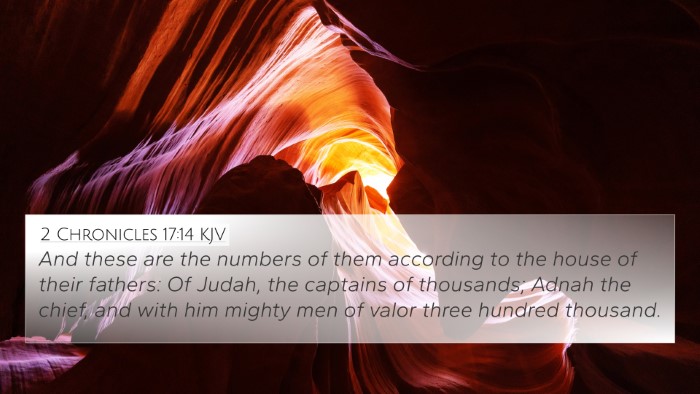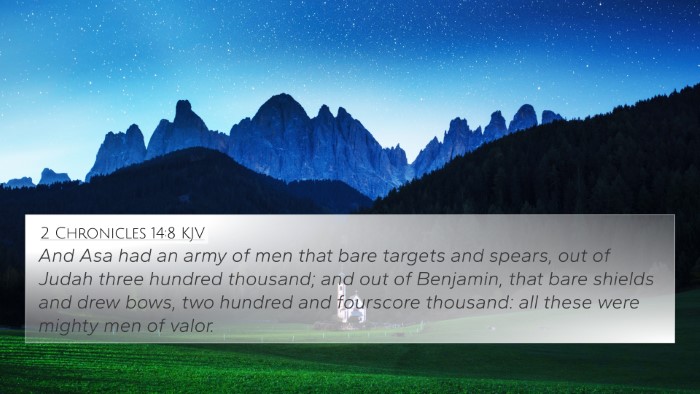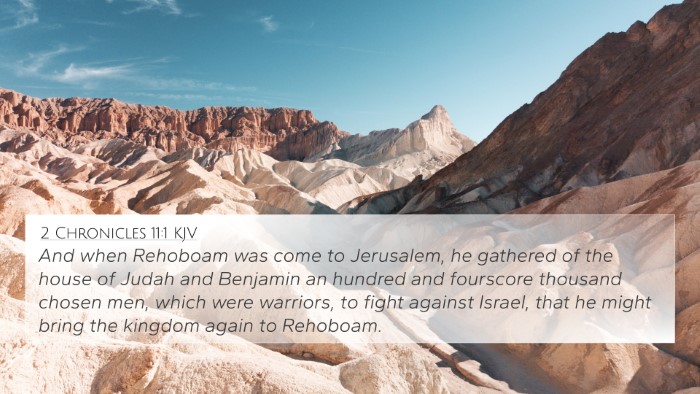Understanding 2 Chronicles 13:3
2 Chronicles 13:3 states, "And Abijah set the battle in array to fight with Jeroboam." This verse captures a significant moment in the conflict between the divided kingdoms of Judah and Israel. Through the lens of public domain commentaries, we delve into the meaning and implications of this verse.
Context and Background
This verse occurs during the reign of Abijah, the king of Judah, who took up arms against Jeroboam, the king of Israel. The historical backdrop of this battle is essential as it reflects the larger struggles between the two kingdoms formed after Solomon's reign.
Commentary Insights
-
Matthew Henry:
Henry emphasizes the significance of this conflict, noting that Abijah's readiness for battle illustrates the faith demonstrated by the southern kingdom of Judah against an unfaithful Israel. This act symbolizes the importance of loyalty to the covenant God made with David, serving as a theological reminder of God's promises.
-
Albert Barnes:
Barnes highlights the military strategy and courage exhibited by Abijah. His preparation for battle signifies not only physical readiness but also spiritual preparedness, suggesting that the Lord's favor rests on those who seek to uphold righteousness.
-
Adam Clarke:
Clarke discusses the moral implications of leadership represented by Abijah. He points out that this confrontation reveals the tension between true worshippers of God and those who have distorted the worship in Israel under Jeroboam, showing us the consequences of deviation from God's commands.
Bible Cross-References
To gain a deeper understanding of 2 Chronicles 13:3, it's beneficial to consider the following cross-references:
- 1 Kings 14:31 - Highlights the reign of Abijah and his relationship with his father, illustrating the continuation of Davidic promises.
- 2 Chronicles 11:4 - God instructs Rehoboam not to fight with Israel, hinting at the divine oversight in the division of the kingdoms.
- 1 Kings 15:1-2 - Further details the lineage of Abijah, reinforcing the importance of his heritage in the ongoing conflict.
- 2 Chronicles 12:7 - Acknowledges the significance of God's involvement in the affairs of Judah, supporting the righteous efforts of its leaders.
- 1 Chronicles 2:4-15 - Gives context to the genealogy of the kings, enriching our understanding of the historical leadership.
- Amos 7:10-13 - A prophetic view which critiques the Northern kingdom (Israel) for their transgressions, thus echoing the conflict represented in Abijah's campaign.
- Psalm 78:67-70 - Reflects on God's choice of David and the lineage that Abijah represents, affirming God's unwavering commitment to Judah.
Thematic Connections
This verse connects with several broader themes within scripture.
- Covenant Loyalty: The battle represents a larger struggle for fidelity to God's covenant.
- Divine Justice: Abijah's actions can be seen as God’s justice being executed against Israel's unfaithfulness.
- God's Sovereignty: The outcomes of the conflict reflect God's control over nations and history.
Conclusion
In conclusion, 2 Chronicles 13:3 serves as a pivotal moment that illustrates the ongoing conflict between faithfulness to God’s covenant and human rebellion. Understanding this verse through the lens of various commentaries enriches our comprehension of its theological and historical significance. The connections between the biblical texts and themes aid in creating a more comprehensive and profound understanding of these ancient narratives.
Further Research
For those interested in exploring the connections between Bible verses further, consider using tools for Bible cross-referencing and studying thematic connections across scriptures. Resources like a Bible concordance or a Bible cross-reference guide can provide invaluable support in your studies, helping to unearth the rich inter-Biblical dialogue present throughout God's Word.
